How waste works in Switzerland
When I first moved to Switzerland, I couldn't stop talking about how expensive it is to live here. Then, one day, I stumbled upon a startling fact: a roll of ten small trash bags (think bathroom waste basket size) cost a whopping $23. Before you jump to the same conclusion I did, wait to hear this rationale – they want to encourage people to recycle! In Switzerland, we don't pay for trash pickup; instead, it's the bags you use that foot the bill. Recycling, on the other hand, is free, at least not directly out of your pocket. I couldn't help but wonder how this system would fare in the USA.
Would it make people waste less and think more about what they're throwing away?
In the past seven years, I've had the opportunity to live in three different cities, each with its unique approach to waste collection. While some aspects were similar, there were key differences in how they managed waste.
Similarities and Differences
Across all these cities, one common thread is the structured waste collection system. There's a designated day for disposing of each type of waste. However, the definition of "certain type of waste" is more complex here; everything is categorized and organized to streamline waste management, but it may not always be the most convenient system for residents.
Divergent waste management practices mostly revolve around how kitchen waste is handled. Some cities require residents to purchase special bags, available in various sizes, which are collected once a week. In contrast, others don't mandate a specific bag type but require the proper number of pre-paid vignettes (stickers) based on the bag's size. If you happen to use the wrong bag or apply the wrong sticker, you'll find your trash inspected, and fines may follow.
Making the effort
This system has encouraged us to be more conscious of our waste. I find myself thinking about it more than I ever did in the US. Our household has dedicated spaces in the kitchen, laundry room, and even the basement (cellar) for waste collection. To illustrate, in Rheinfelden, the city only collects cardboard six times a year. During the intervening months, you must either store your waste or transport it to a collection site. Separate days are allocated for various types of waste, such as paper, metal, large objects, and yard waste. Websites provide all the necessary information and specify collection days based on your location in the city.

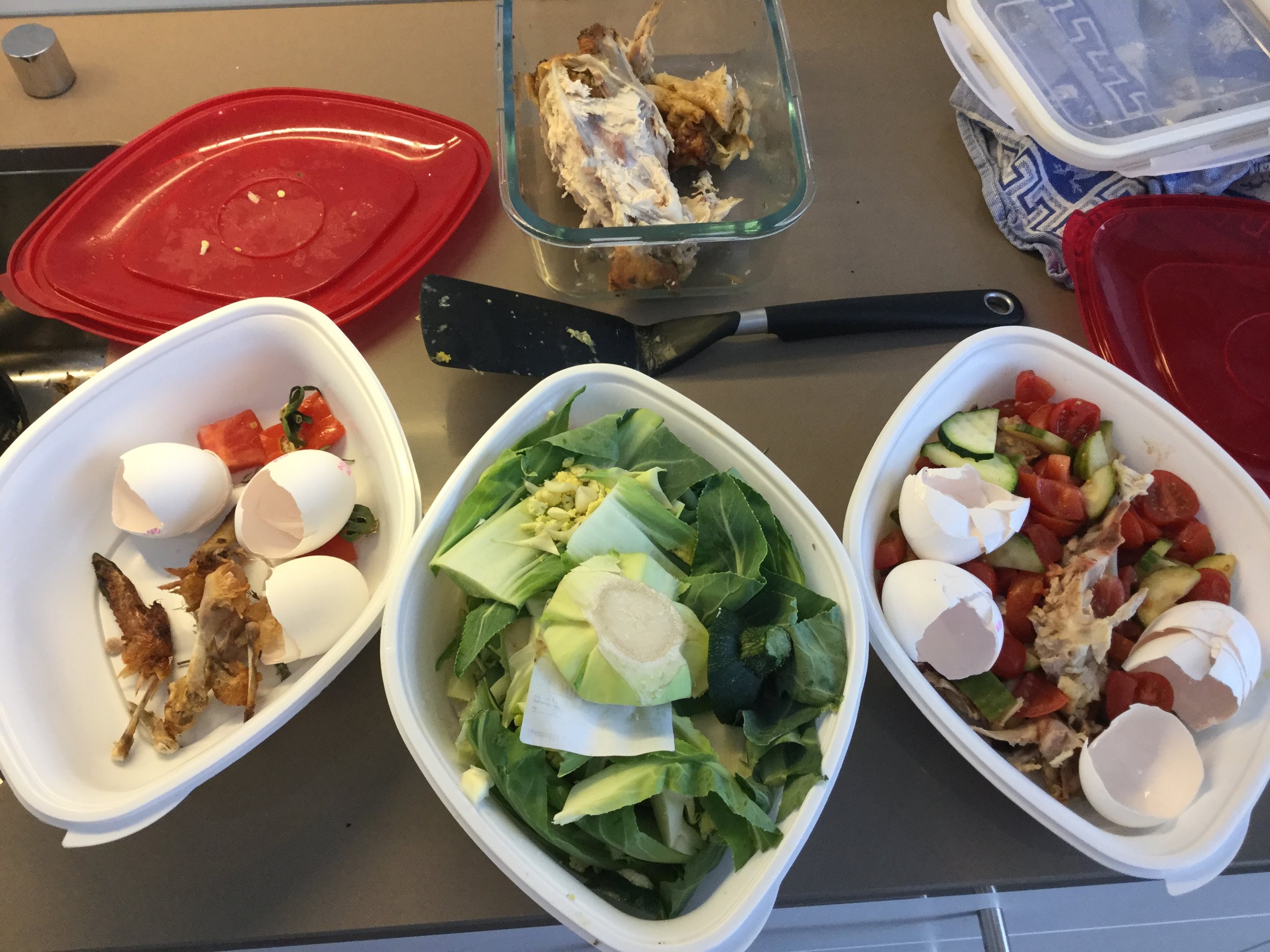
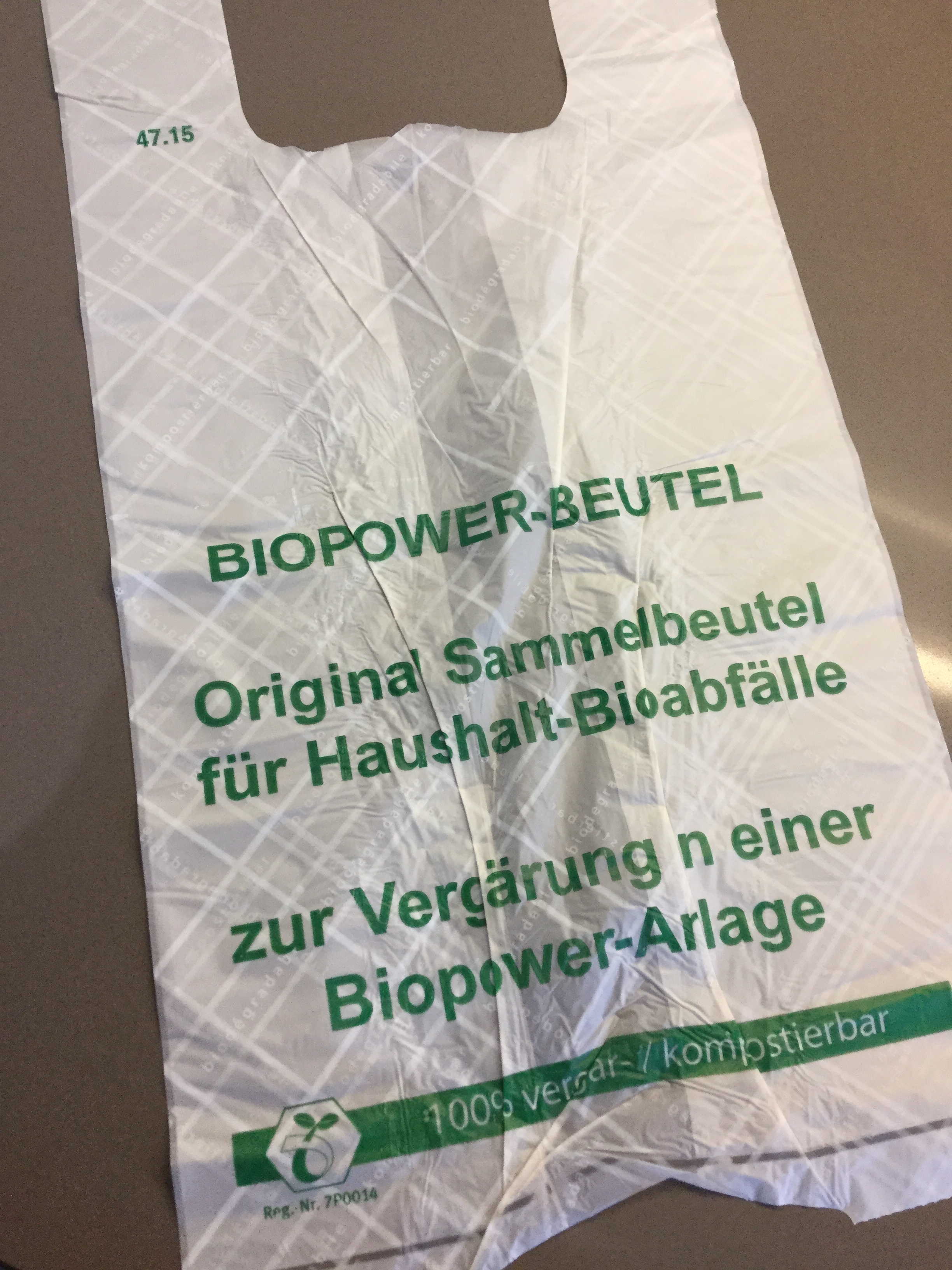
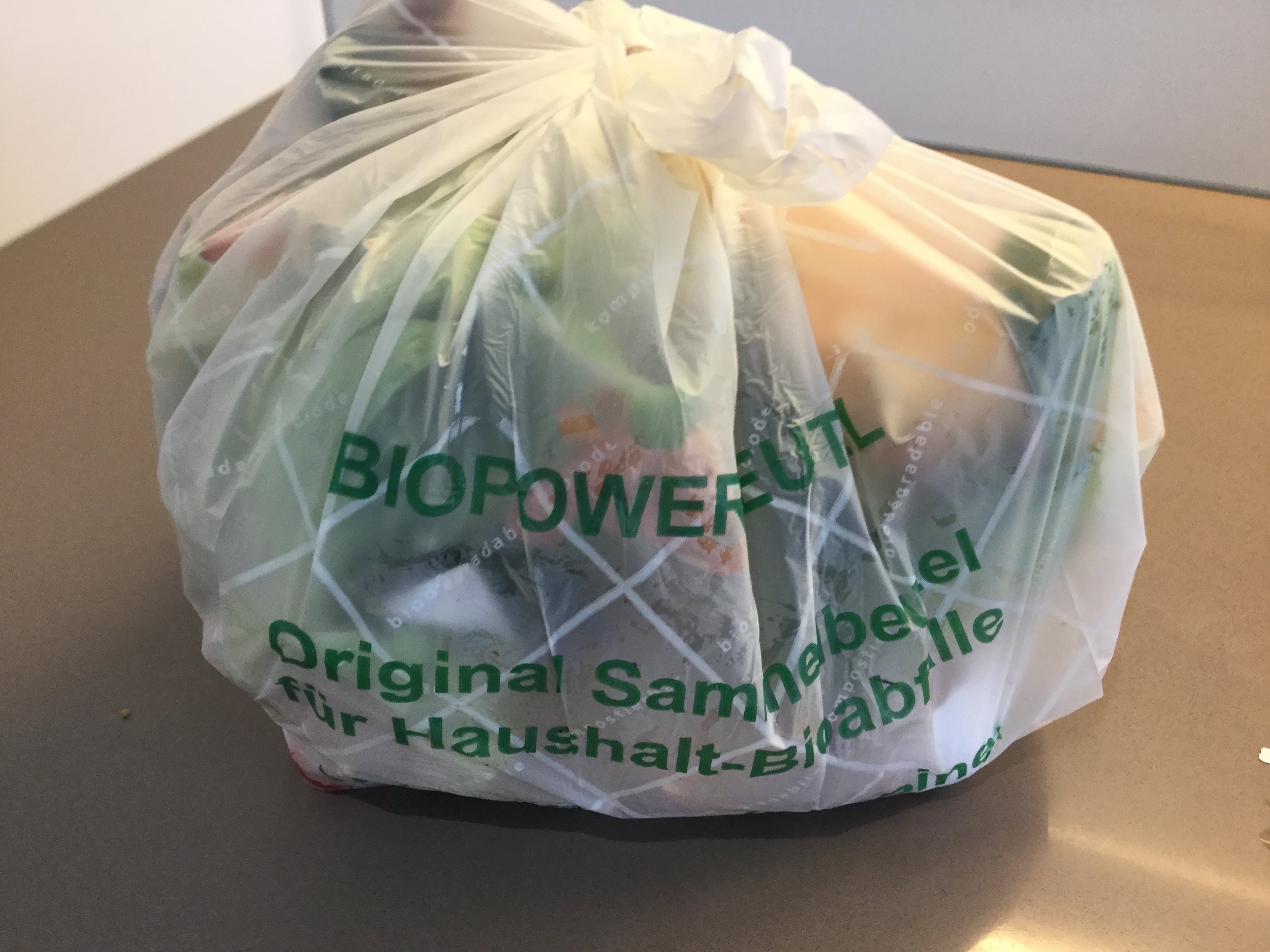
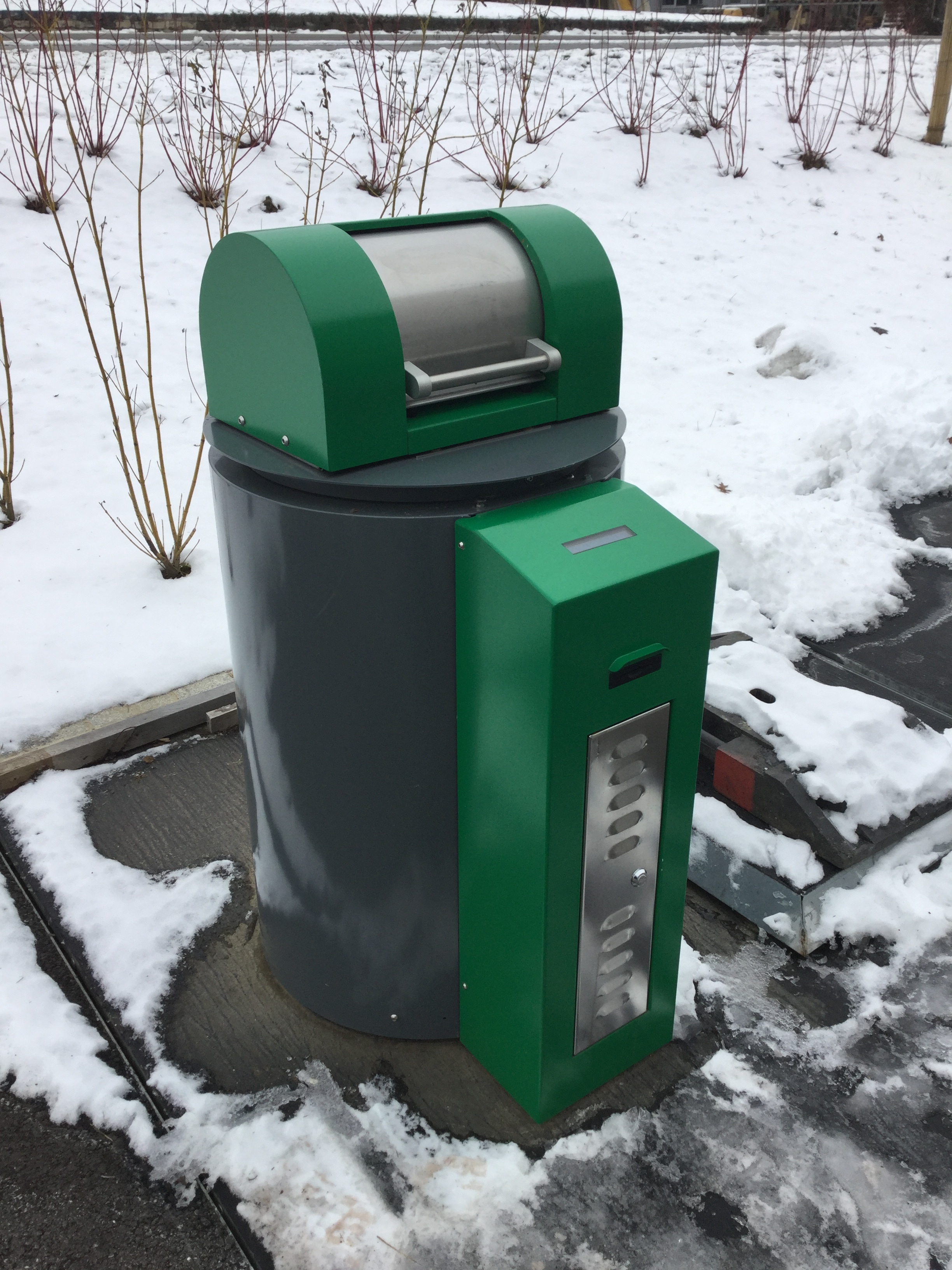

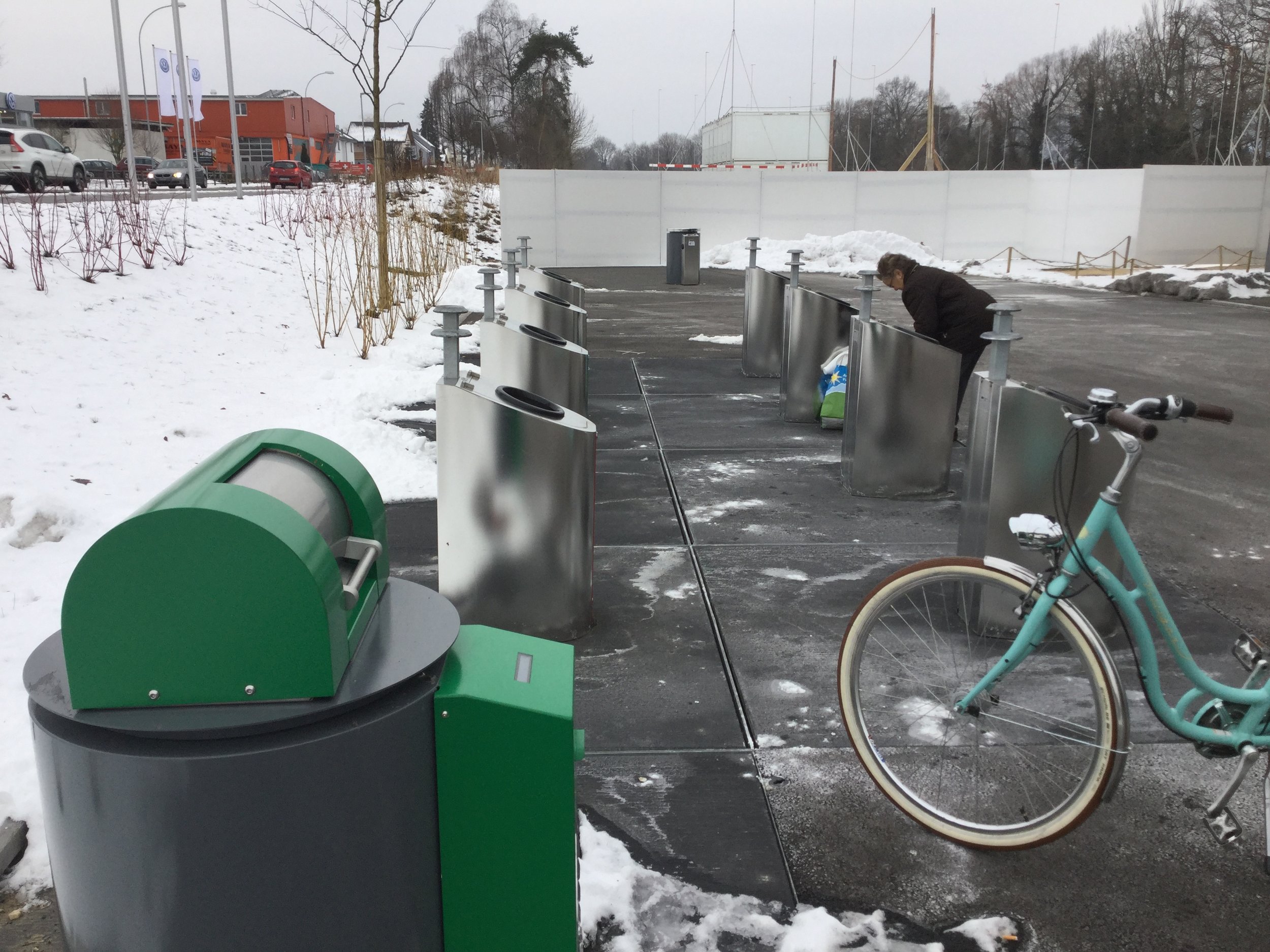
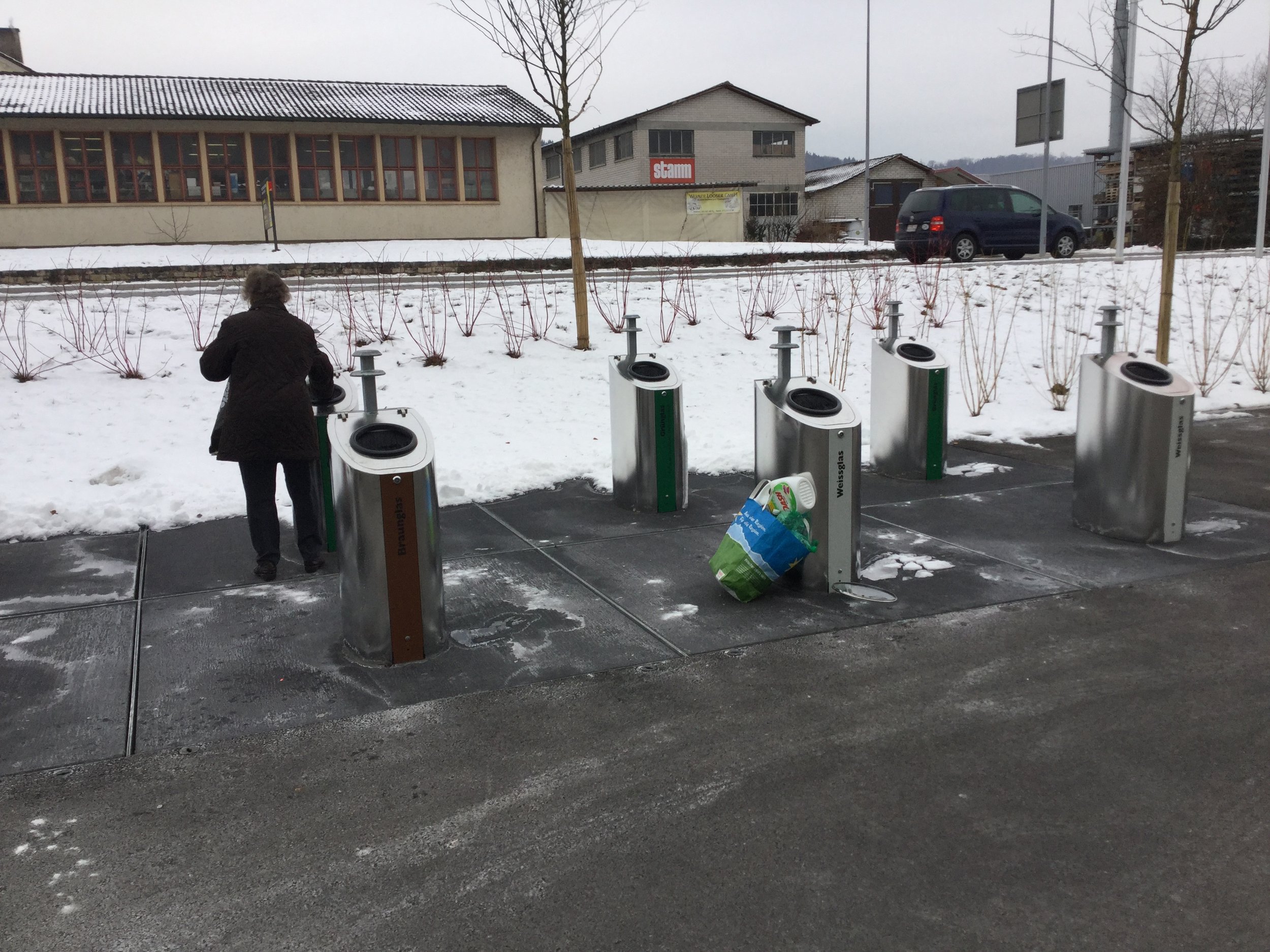
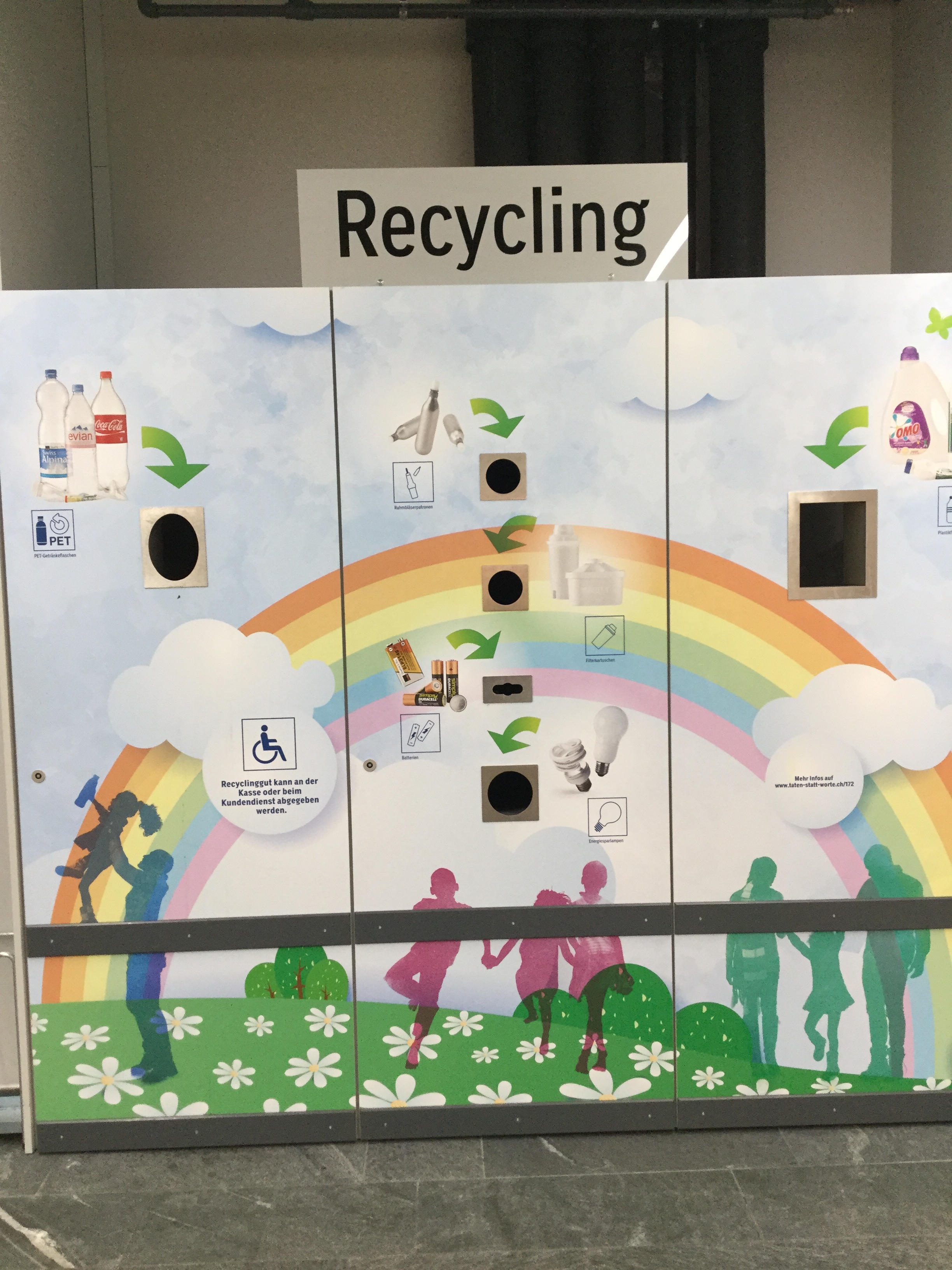
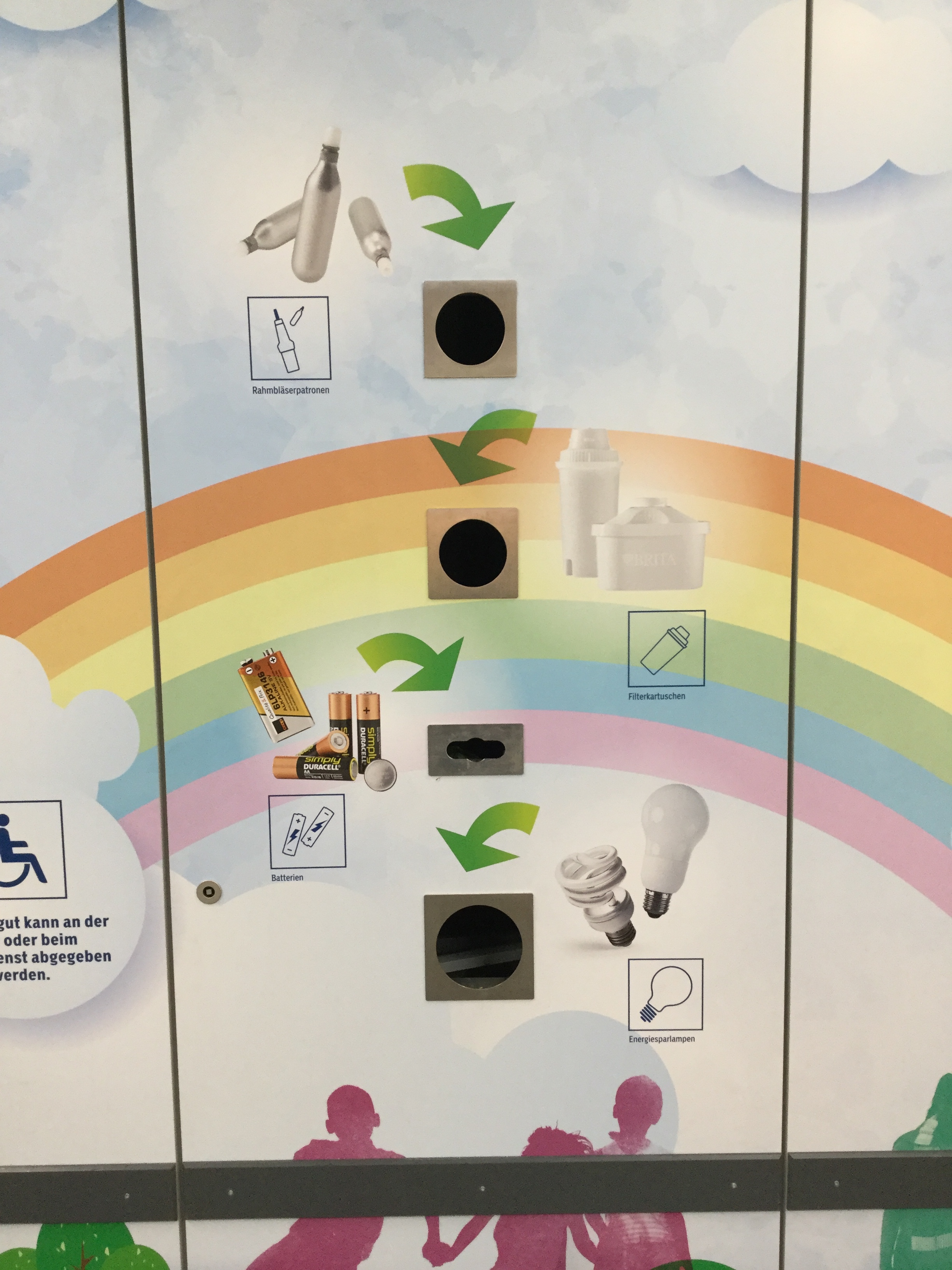
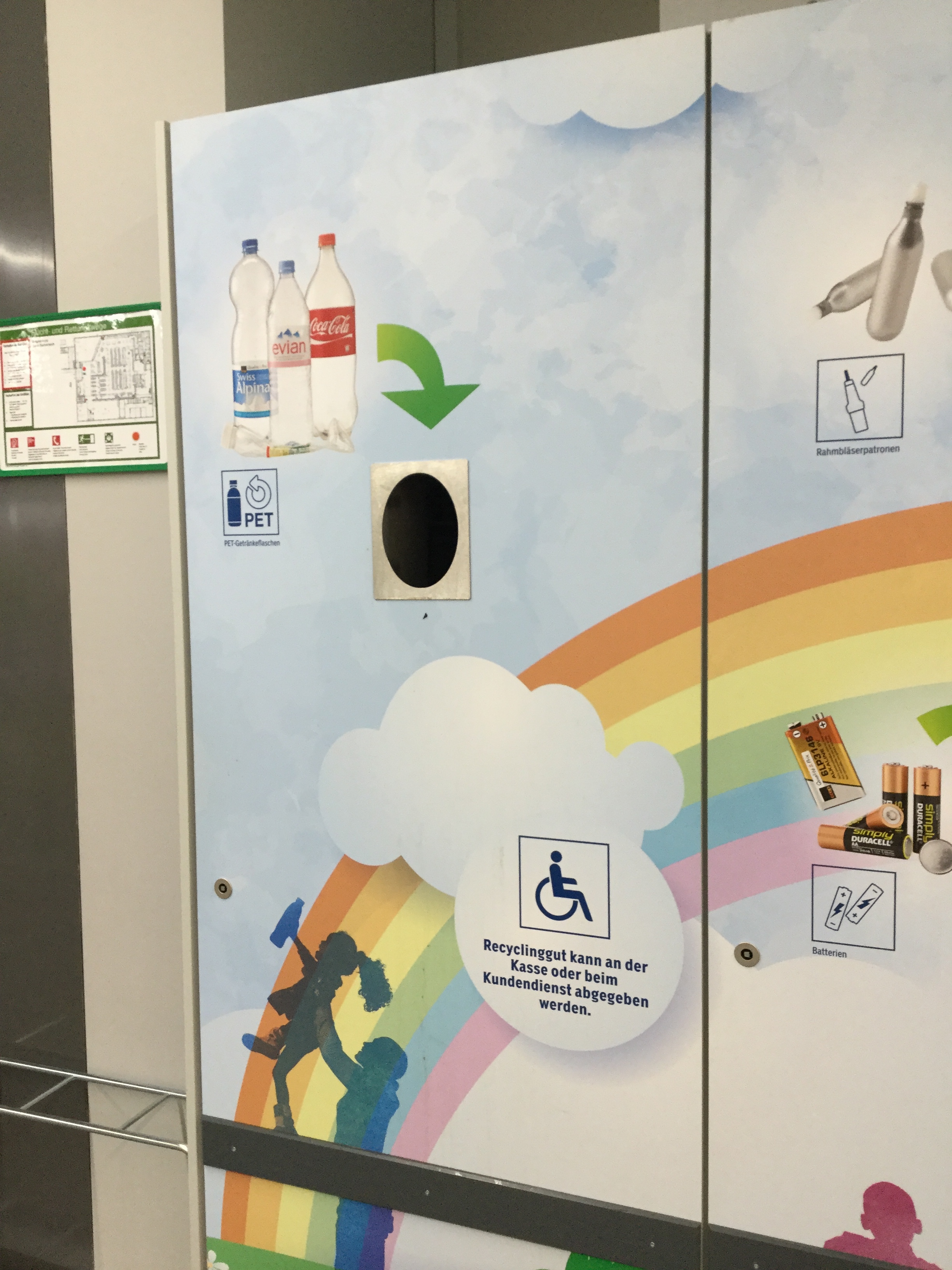
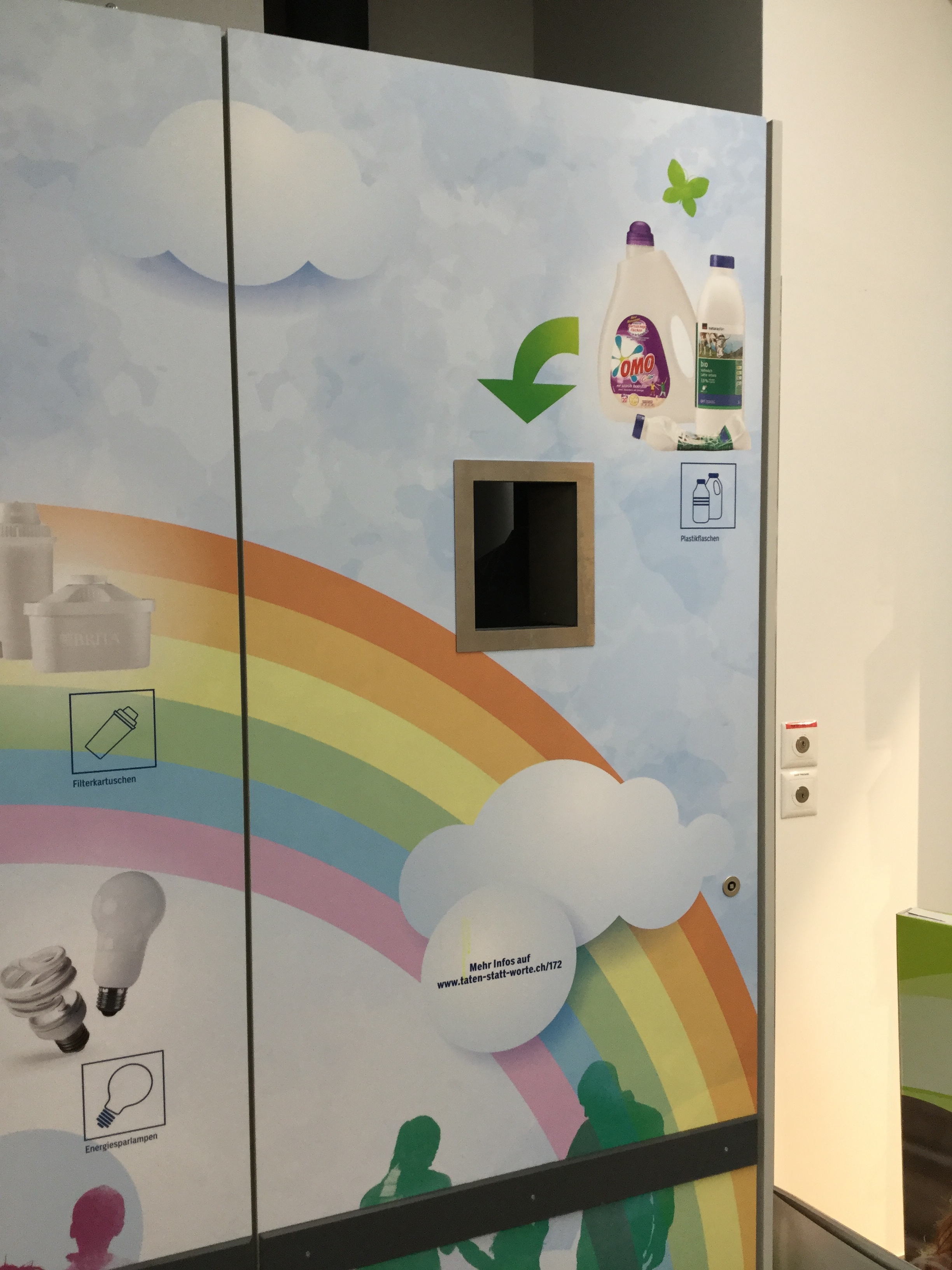
In jest, I poke fun at the topic, but I truly appreciate this approach. It lets us conveniently dispose of items like old paint or expired prescription medication. I save my kitchen scraps in special containers in my small refrigerator, transferring them to a biodegradable bag once a week, along with my special card, for depositing in the bio trash facility. Remarkably, it costs only 0.48 Swiss Francs for each deposit. Why go through this hassle? With just two people in the household, we don't generate enough trash to take out the kitchen bag regularly, and I certainly don't want anything stinking up the place. Plus, it's satisfying to know that my scraps will be composted for others to use.
Enhanced Recycling
Recycling has always been part of our routine, whether PET, glass, or aluminum containers, which we take to the grocery store or city collection sites. In Rheinfelden, they've even introduced a new 'yellow' bag exclusively for plastic packaging. This development allows for the collection of nearly all types of plastic, including plastic wrap, bags, food containers, and more.
How has this affected Switzerland?
The introduction of sack fees in many Swiss municipalities, including Basel in 1993, aligns with the Swiss Environmental Protection Act, which mandates that those harming the environment bear the costs. The results have been positive, with increased recycling rates and reduced consumption of raw materials. For instance, before the sack fees, around 78,000 tonnes of municipal waste were incinerated in Basel in 1992, with a recycling rate of only 17%. By 2012, the landscape had transformed, with 35,000 tonnes of separately collected waste, including greenery, offsetting 32,500 tonnes of household waste, resulting in an impressive recycling rate of 52%.
Graph from Basel Stadt Office of Environment and Energy showing the dramatic decrease in incineration and increase in recycling after implementing a "paid sack" approach.
I'm curious to know if parts of the US have implemented such extensive waste management considerations.
If you have any insights, please share them in the comments section below.



